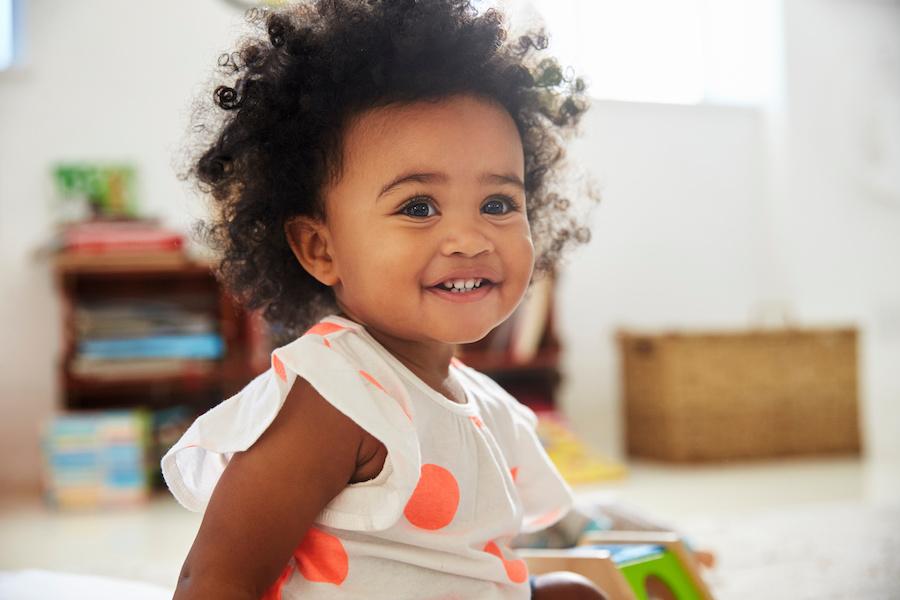The greatest change since the birth of your child is when it’s time to start childcare. Suddenly, your routines and everyday life will return to something resembling the life you had before your child was born. After a maternity or parental leave with an active and sociable little ray of sunshine, you may have been looking forward to your little one spending some time in childcare. Others may feel a little more anxious. “How will my child cope on her/his own with so many others around? She/He is still so little, just a baby!”
Suddenly it feels like the time has flown by too fast. If your child has siblings at the same childcare center, or has the same caregiver, the change usually feels a lot easier since the childcare center or caregiver is already a part of your family’s daily life. Your little one is accustomed to the environment because of all the times she/he has been there picking up or dropping off the older sibling.
But children differ, and it is good to take your child’s personality into account. The childcare center or caregiver will probably have their own routines for settling children in, but if you feel that your precious darling needs time to adapt, pay a visit or two before your child starts. This will give her/him a chance to get to know the staff and the other children. Visiting a playgroup, or other parent-baby or parent-toddler groups, can help your child adapt to having lots of other children around. You can also let your child experience being away from you by having a babysitter at home from time to time. Try to transition your child while you are still on maternity or parental leave so that you can be fully flexible, and your child can start with shorter periods rather than full days. You can also take unpaid parental leave to get your child settled in if you are working, though this will mean a loss in income.
Despite any concerns you may have, research shows that childcare can provide many benefits. As long as the activities are of good quality and the child is happy, it seems to have a positive effect on development. One way to make sure that your child feels happy is through schooling her/him in well. It’s completely normal for your child to react when you leave. Separating and meeting again are important elements in children’s first bonding experiences. The mental band between you and your child stretches considerably when you are apart.
As a parent you will probably get a little emotional too. Most parents have hidden, sobbing around a corner, after leaving their baby for the first time and wondered whether it’s really worth the pain. If you feel as though you’ve failed, remind yourself that this is a natural reaction for a parent. In fact, associating with and being affected by your child’s feelings is proof that you are sensitive to your child. You can help your child when you leave by acknowledging her/his feelings and saying something like “I know it feels sad to say goodbye, sweetie” while at the same time staying cheerful, waving goodbye and reinforcing the idea that you’ll see each other again soon.
If you still feel bad, you can call the center or caregiver after half an hour to see whether your child has calmed down and is all right. The staff or caregiver isn’t there just to ensure that your child feels secure, they are there to help the parents too. It requires a lot of trust to place your most precious treasure in the care of others, particularly if you don’t know the person.
Saying goodbye becomes easier as childcare becomes part of your daily life. If your child still finds it difficult to let you go, ask the staff or caregiver to help find something to make it easier for your child. Having a routine where you say “Goodbye” in a special way can make the separation easier. Some children prefer a quick “Goodbye” while others need some time in your arms to get used to the idea. Maybe your child prefers to be welcomed by their favorite person at the childcare center, wants a cuddle from the caregiver, or wants to play with a particular child. Sometimes arriving slightly earlier or later can help, as can having a special soft toy to snuggle away from home.
Choosing which parent schools in the child is often a practical decision based on jobs and maternity or parental leave. But in two-parent families one option may be to let the most relaxed parent transition the child. On the other hand, sometimes the opposite is true, and it is better that the more nervous parent does so. Time spent settling in the child is also an opportunity to get to know the staff or caregiver and the environment. This is important as the whole family needs to trust the childcare center or caregiver. This is a big part of a child’s life. They spend many hours every week there, so the idea of them being there should feel good for both the parents and the child.
Sources:
- Bergström M., (2021) Lyhört föräldraskap. Bonnier Fakta
- Bergström M., (2012) Att bli mamma. Tankar och känslor kring att vänta, föda och leva med barn. Bonnier Fakta
